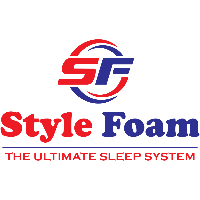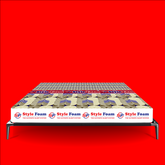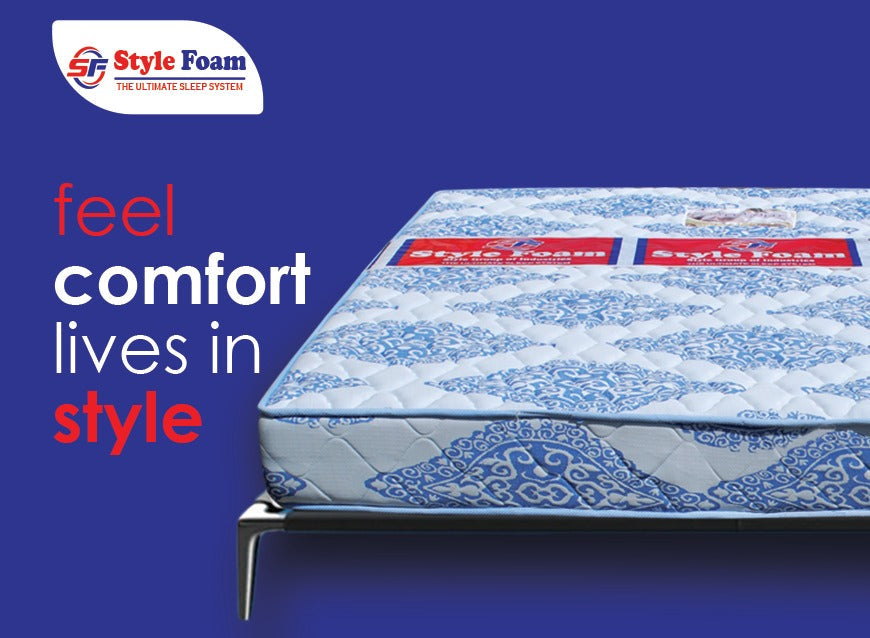In today’s fast-paced world, sleep isn’t just a luxury—it’s essential for overall health and wellbeing. However, for millions of people suffering from chronic back and joint pain, getting a good night’s sleep is a daily struggle. This is where a medicated mattress comes into the picture. Specifically designed to provide therapeutic support and relief, these mattresses have become an increasingly popular solution among individuals looking to ease discomfort and improve sleep quality. But what exactly is a medicated mattress, and how does it work?
In this comprehensive blog post, we’ll break down everything you need to know about medicated mattresses, including how they work, who they benefit, and how to choose the right one for your needs.
What Is a Medicated Mattress?
A medicated mattress—sometimes referred to as an orthopedic or therapeutic mattress—is designed with medical and anatomical considerations in mind. Unlike traditional mattresses, medicated versions are engineered to support the body’s natural alignment, relieve pressure points, and promote circulation. They are typically recommended by medical professionals for people suffering from:
-
Chronic back pain
-
Arthritis
-
Joint pain or stiffness
-
Sciatica
-
Post-surgical recovery
-
Mobility issues or bedridden conditions
These mattresses are often made with high-density memory foam, latex, gel-infused layers, or advanced orthopedic springs, and sometimes a combination of all, to deliver optimal support and comfort.
How a Medicated Mattress Works
The functionality of a medicated mattress lies in its construction. Here's how it helps alleviate pain and improve sleep:
1. Spinal Alignment
A key contributor to chronic back pain is poor posture during sleep. Medicated mattresses are designed to keep your spine in a neutral position by conforming to your body's natural curves. Proper spinal alignment helps reduce stress on muscles, ligaments, and nerves.
2. Pressure Point Relief
Traditional mattresses may cause pressure to build up in sensitive areas like the hips, shoulders, and knees. Medicated mattresses distribute your weight evenly, reducing the risk of pain and bedsores—especially important for those with limited mobility.
3. Motion Isolation
For people sharing a bed, movement can become a disruptive factor. Most medicated mattresses use memory foam or hybrid technologies that absorb motion, ensuring one person’s movement doesn’t disturb the other’s sleep.
4. Temperature Regulation
Advanced medicated mattresses are equipped with cooling gel layers or breathable materials that help regulate body temperature. This feature is particularly beneficial for people who suffer from inflammation or joint pain that worsens with heat.
Who Should Use a Medicated Mattress?
While medicated mattresses are ideal for people dealing with medical conditions, they can also benefit anyone looking to enhance their sleep quality. Here’s a breakdown of who can gain the most from switching to one:
1. Elderly Individuals
With age, the body loses muscle mass and joint elasticity, making older adults more susceptible to aches and pains. A medicated mattress can offer the cushioning and support they need.
2. People With Chronic Pain
Conditions like fibromyalgia, arthritis, and herniated discs often involve persistent pain. Medicated mattresses help by providing consistent support and reducing stress on pain-sensitive areas.
3. Post-Surgery Patients
Patients recovering from surgery often need to stay in bed for extended periods. Medicated mattresses minimize the risk of pressure ulcers and aid in a more comfortable recovery.
4. Athletes and Physically Active Individuals
Active individuals who put their bodies through intense physical strain can benefit from the enhanced muscle recovery a medicated mattress can offer.
Types of Medicated Mattresses
Choosing the right type of medicated mattress is crucial. Here's a breakdown of the most common types:
1. Memory Foam Mattresses
These are among the most popular due to their ability to mold to the body’s shape. They offer excellent support and pressure relief.
2. Latex Mattresses
Made from natural or synthetic latex, these mattresses are known for their durability, bounce, and natural cooling properties.
3. Hybrid Mattresses
Combining innerspring coils with memory foam or latex layers, hybrids offer the best of both worlds—support and comfort.
4. Orthopedic Spring Mattresses
These mattresses use firmer springs and layers designed to support the back and joints effectively. Ideal for people who prefer a more traditional mattress feel.
Key Features to Look for in a Medicated Mattress
When shopping for a medicated mattress, consider the following features:
1. Firmness Level
Medium-firm mattresses are usually recommended for people with back pain as they offer a good balance of support and comfort.
2. Material Quality
Look for high-density memory foam or natural latex, which last longer and provide better support.
3. Zoned Support
Some mattresses offer targeted support zones for different body parts—firmer under the hips and softer under the shoulders, for example.
4. Breathability
Ensure the mattress includes breathable materials or cooling gels to maintain a comfortable sleeping temperature.
5. Hypoallergenic Properties
A medicated mattress should resist allergens like dust mites, mold, and bacteria—ideal for those with allergies or respiratory issues.
Tips for Getting the Most Out of Your Medicated Mattress
Once you invest in a medicated mattress, here are some tips to ensure it delivers long-term benefits:
-
Use a Proper Bed Frame: Ensure your mattress is well-supported.
-
Rotate Regularly: This helps prevent sagging and uneven wear.
-
Use a Mattress Protector: Keeps the surface clean and protects against allergens and spills.
-
Pair with the Right Pillow: Supportive pillows help maintain spinal alignment from head to toe.
Addressing Common Myths About Medicated Mattresses
There are several misconceptions surrounding medicated mattresses. Let’s clear up a few:
Myth 1: Medicated mattresses are only for the elderly.
Fact: People of all ages suffering from pain, injury, or poor sleep can benefit from a medicated mattress.
Myth 2: They are too expensive.
Fact: While medicated mattresses can be more costly upfront, the health benefits and long lifespan often make them a smart investment.
Myth 3: All memory foam mattresses are medicated.
Fact: Not all memory foam mattresses provide medical-grade support. True medicated mattresses are designed with orthopedic input and often go through rigorous testing.
How to Know When It’s Time for a Change
If you’re wondering whether a medicated mattress is right for you, consider the following signs:
-
You wake up with stiffness, pain, or fatigue.
-
Your current mattress sags or offers little support.
-
You toss and turn all night trying to get comfortable.
-
You’re recovering from surgery or managing a chronic condition.
If any of these apply to you, it might be time to upgrade your sleeping setup.
Final Thoughts
Choosing the right mattress can be a life-changing decision, especially if you're living with chronic pain. A medicated mattress offers more than just comfort—it delivers targeted relief, promotes better posture, and supports long-term health. By investing in one, you're not just buying a mattress—you're investing in better sleep, improved mobility, and a higher quality of life.
Whether you're dealing with a specific medical condition or just tired of waking up sore, making the smart choice today can lead to countless nights of restful, pain-free sleep.












